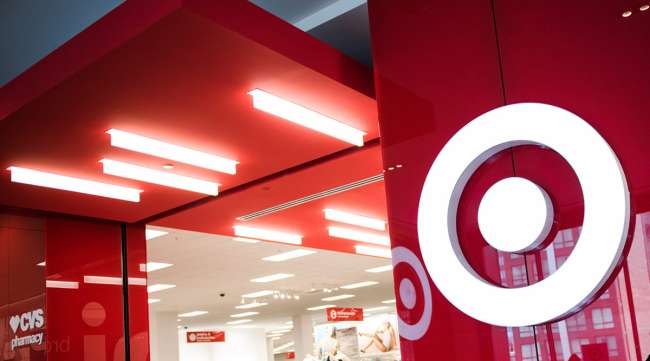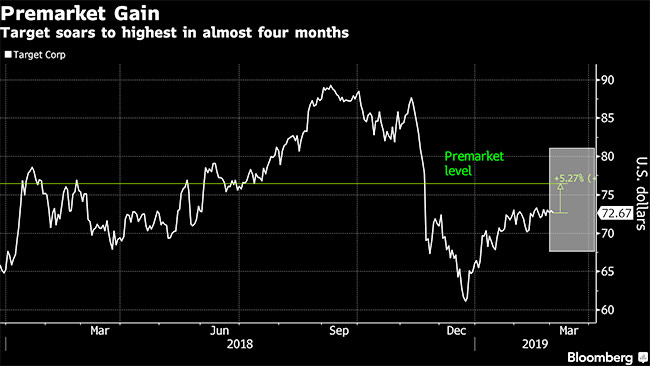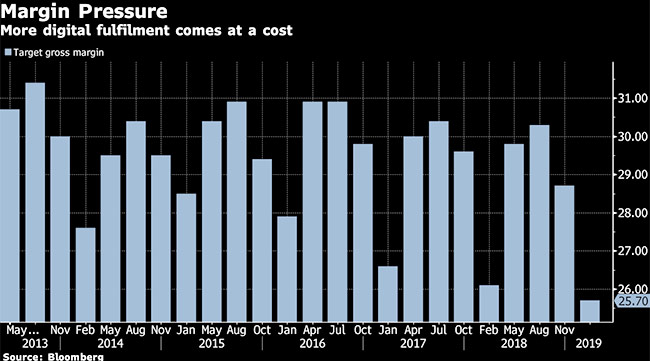Target Soars as Rosy Full-Year Outlook Follows Brisk Holiday Sales

Target Corp. jumped the most in more than two months as it followed up strong holiday sales with upbeat projections for the current year, distancing itself from the travails of mall-based department stores.
Profit this fiscal year will be $5.75 to $6.05 a share, above analysts’ average estimate, while comparable sales will increase by a low- to mid-single-digit percentage, the company said March 5. The shares climbed as much as 5.3% to $76.50 on March 5.

The cheap-chic retailer has regained its footing by remodeling hundreds of stores, introducing about 25 new private brands and expanding its online capabilities. That has allowed Target to keep pace with bigger rival Walmart Inc. while outperforming department store chains such as J.C. Penney Co. and Macy’s Inc., which have suffered from Amazon.com’s onslaught.
Macy’s just unveiled a fresh round of cost cuts amid slowing growth, while J.C. Penney poached a merchandising executive from Target to revive its apparel business.
Target’s efforts “are helping it compete with the likes of Walmart in terms of prices, the department stores in terms of merchandising and Amazon in terms of same-day delivery,” Telsey Advisory Group analyst Joe Feldman said in a note published before the results.

The company previously reported holiday sales, so all eyes were on Target’s bottom line to gauge the impact that its free-shipping offers and other promotions had on profitability. Gross margins for the fourth quarter were 25.7%, just missing estimates. The heavy cost of online shipping is to blame, even as the company pushed for more in-store pickup of digital orders. Margins also were weighed down by a greater proportion of holiday sales coming from less profitable categories such as toys and baby products.
Target shares the earnings spotlight today with Kohl’s Corp., which also impressed analysts with sales that topped estimates and a bright full-year outlook. Kohl’s has seen its customer traffic increase thanks to a partnership that allows shoppers to return Amazon orders in its stores, with the hope that they’ll pick up an item or two on the way out.




